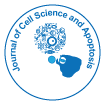Efficacy of the Cognitive Behavioural Therapy versus Applied Behaviour Analysis in Reducing Aggression in Adolescents
Received Date: May 15, 2017 / Accepted Date: May 24, 2017 / Published Date: May 27, 2017
Abstract
The purpose of the present study was to investigate whether cognitive behavioural therapy and applied behaviour analysis can be effective in reducing aggression level in adolescents. Moreover, a comparison was made, between both treatment procedures to ascertain the effectiveness of both approaches for evaluating the effectiveness and change in aggression as outcome. It was hypothesized that there will be a significant difference in the post aggression level of adolescents undergoing cognitive behaviour intervention and applied behaviour analysis and also that there will be a significant difference in the effectiveness of between them in reducing aggression. For this purpose, a sample of 14 participants was recruited with age range between 13 to 18 years. The Beck anger inventory-youth (BANI-Y) version was administered to screen the competitive participants who fulfilled the inclusion criteria of research. After consent for participation and demographic information, the sample was divided into two groups, containing equal number of participants (n=7). The Cognitive behavioural therapy intervention participants received 10 minimalized individual sessions based on cognitive behaviour therapy for anger management for substance abuse and mental health clients by Patrick Reilly, Shropshire, (2002). Each individual session duration was about 60 minutes and the continued for 10 consecutive weeks. However, the applied behaviour intervention group received intervention in four phases. The observation phase of 5 days which was followed by 10 days of intervention phase in which targeted behaviour was reduced by use of differential reinforcement of low rate of behaviour. After intervention phase, post intervention phase continued for 5 days which evaluated the after effects of intervention and lastly follow up of 5 days which as conducted after 1 week of intervention. Results obtained were analysed using Statistical Package for the Social Sciences using t test, and pair sample t test to test the statistical significance of the relationship of the variables. Findings showed that both cognitive behavioural therapy (p=0.020) and applied behaviour analysis (p=0.024) were effective in reducing aggression in adolescent, however no significant results were obtained in favour of either one of them as more effective over other (p=0.350). Further, no significant difference was found in effectiveness of change of aggression as outcome of both therapies (p=0.273). Significant implication of the present study includes using specialities of these therapies with adolescent population by including them in psychotherapeutic as well as in educational process.
Keywords: Aggression; Cognitive behavioural therapy; Applied behaviour analysis; Adolescents
Citation: Jamil K, Yusuf T (2017) Efficacy of the Cognitive Behavioural Therapy versus Applied Behaviour Analysis in Reducing Aggression in Adolescents. J Cell Sci Apo 1: 106.
Copyright: ©2017 Jamil K, et al. This is an open-access article distributed under the terms of the Creative Commons Attribution License, which permits unrestricted use, distribution, and reproduction in any medium, provided the original author and source are credited.
Share This Article
天美传媒 Access Journals
Article Usage
- Total views: 6342
- [From(publication date): 0-2017 - Jan 10, 2025]
- Breakdown by view type
- HTML page views: 5458
- PDF downloads: 884
